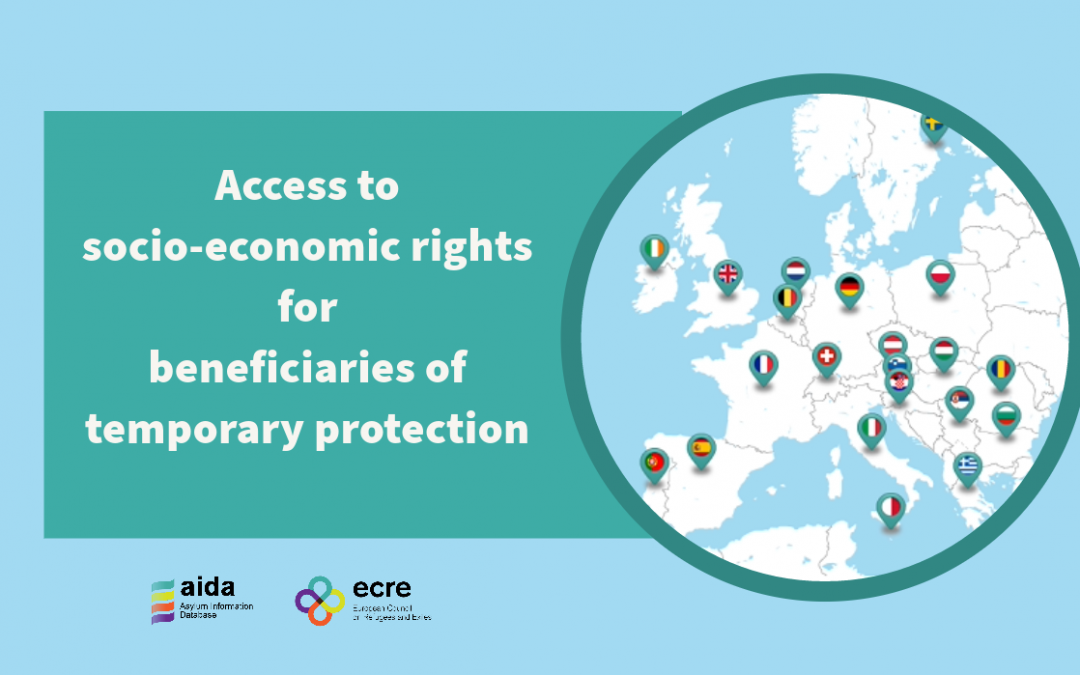ECRE has published a comparative report providing an overview of access to socio-economic rights for temporary protection beneficiaries (TPBs) in 19 EU member states (AT, BE, BG, CY, DE, ES, FR, GR, HR, HU, IE, IT, MT, NL, PL, PT, RO, SE, and SI) and 3 non-EU countries (Serbia, Switzerland, United Kingdom) after flight from Ukraine.
Information was drawn from ECRE’s Asylum Information Database (AIDA) and supplemented by relevant publications from ECRE, the EU Asylum Agency (EUAA) and UNHCR. The report focuses on the following areas: access to housing, employment, education, healthcare and social welfare. As such, it provides an important contribution to evidence on the implementation of the EU’s Temporary Protection Directive (2001/55/EC, the TPD) and national temporary protection regimes for people fleeing Ukraine.
The TPD was activated in response to Russia’s invasion of Ukraine on 24 February 2022, enabling EU member states to facilitate access to protection and services for those fleeing Ukraine. At the same time, countries which are not bound by all the Common European Asylum System (CEAS) instruments used their respective national frameworks to ensure direct and speedy access to protection and the related rights. Figures provided by the UNHCR suggest that, as of May 2023, over 8.2 million people who had left Ukraine were recorded across Europe, with more than 5.1 million registered under the TPD or equivalent national protection schemes in Europe.
The report underlines a number of challenges relating to the granting of access to the socio-economic rights analysed, as well as a fragmented picture of countries’ respect for the obligations deriving from applicable international, EU and national laws. Ensuring the inclusion of TPBs in host communities depends on access to socio-economic rights. Of particular importance is supporting access to long-term accommodation, which has particular potential in terms of facilitating access to other, related rights and paving the way for displaced people to lead independent and dignified lives.
This report reveals the uneven implementation of the TPD and equivalent instruments, resulting in divergence in terms of the assistance granted. Moreover, it identifies a number of challenges related to implementation of the TPD in terms of access to socio-economic rights, which result from the limited capacities of states; existing complex administrative procedures; and, in some cases, a lack of equal access to rights compared to nationals or similar categories of legal residents in the states in question. Key findings include: 1) limited access to long-term independent housing; 2) lack of facilitated procedures for recognition of qualifications and available training; 3) restrictions on access to education; and 4) limited access to healthcare and social welfare.
The report also identifies numerous positive practices and measures developed as part of the response to displacement from Ukraine which could be applied to facilitate access to rights and services for all displaced people. The report’s findings are translated into recommendations to national authorities.
For further information:
- Find comparative information in the Asylum Information Database (AIDA)managed by ECRE

